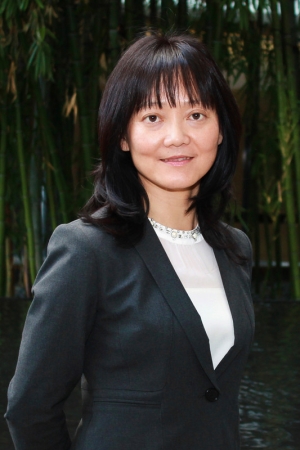Assistant Professor Brings Engineering Perspective to Social Work
April 03, 2014 / by Eric Lindberg- Research
As a young scholar in Taiwan, Shinyi Wu felt like she was being pulled in opposite directions.
Despite being drawn to the social sciences and efforts to improve societal well-being, she possessed a strong desire to pursue a career in the natural sciences and engineering. At that time, those interests led down separate and mutually exclusive paths in academia.
Wu eventually settled on industrial engineering, but she never lost her passion for devising ways to improve the health and well-being of vulnerable individuals from a wider perspective.
“All along, I kept an eye toward social sciences and how my engineering methodology could be applied to solve social problems,” she said.
Wu now has an opportunity to meld her two interests as the newest member of the USC School of Social Work faculty. The assistant professor, who transitioned from her previous post at the USC Viterbi School of Engineering earlier this year, said she is excited to tackle issues facing the U.S. health care system such as chronic illness, population aging and the rising cost of care.
“Social work is the engineering equivalent of the social sciences,” Wu said. “I think we can use many of the things we learn in engineering to address social issues.”
Bringing a fresh perspective to the social work profession is critical to addressing large-scale problems such as challenges facing health care professionals, said William Vega, provost professor with the USC School of Social Work and executive director of the USC Roybal Institute on Aging.
He said Wu and her engineering colleagues take a unique approach that differs from traditional public health and social work models.
“They start with a conclusion and work backwards, thinking through the chain of steps that have to be taken in order to arrive at that conclusion,” he said. “We don’t think that kind of way. We’re kind of deterministic and start at the other end.”
Wu began developing that engineering perspective during her childhood in a rural region of Taiwan.
“I grew up in a very natural environment, so we built a lot of things for our own fun,” she said. “I was trained to be very hands-on.”
She also cared for her grandparents as they aged, giving her insight into the social sciences realm as well as problems in the health care system. Wu saw opportunities to improve the efficiency of care while reducing costs and improving patient satisfaction.
As a doctoral student at the University of Wisconsin–Madison, which offered the only industrial engineering program with a focus on health systems at that time, Wu explored issues of chronic illness, aging and the rapid expansion of aging populations. She later took a position at RAND Corporation as the nonprofit institution’s first engineer focused solely on health.
In an effort to determine how emerging technology could facilitate better health, Wu evaluated a model for providing care to individuals with chronic illnesses and developed a tool kit to help health care professionals use best practices in chronic care.
Intrigued by the interplay between depression and long-term diseases such as diabetes, Wu partnered with Kathleen Ell, the Ernest P. Larson Professor of Health, Ethnicity, and Poverty at the USC School of Social Work, who led groundbreaking studies in the 1970s that linked depression to mortality among patients with heart disease.
“Her extensive experience in clinical trials and clinical expertise in depression helped me realize my dream to carry out a large trial of system redesign,” Wu said.
Seeking to improve how individuals with diabetes and depression manage their illness and make decisions about their health, the researchers developed technology to orchestrate communication between providers and patients, assess patient needs in a more user-friendly and efficient way, and help health care professionals manage their patient caseloads.
“It felt like a dream come true,” Wu said of the resulting model, which relies on an automated telephone and registry system to ensure patients are receiving treatment and follow-up care when it is most needed. “I feel like now we really have systematic solutions to chronic illness care.”
She said initial study results have shown that patients are willing to embrace this new technological approach, are less likely to be depressed, are more likely to have regular diabetes checkups, and are more satisfied with the care they receive.
The system is also proving to be cost effective, Wu said, equating every dollar spent on the automated system to $35 in costs had health care professionals been required to perform that work manually.
“Providers have had a noticeable difference in how they use their time,” she said. Instead of trying to figure out which patients need care, she said they are spending more energy and effort actually treating patients.
As Wu settles into her new position, she plans to continue pursuing ways to improve health care processes, including expanding the model she developed with Ell to other issues such as cancer and palliative care.
She is also working closely with Vega on a major initiative to improve how county and city agencies in the Los Angeles region provide health and social services. Developing models to help policy makers make critical decisions at that level is difficult, Vega said, given the dynamic and fluctuating nature of large care systems.
“This is going to be something that requires big-scale thinking,” he said. “If the work doesn’t ultimately go to changing policy that improves the health of communities, it isn’t worth doing. It’s a hard perspective to hold to, but someone like an engineer who has this kind of experience is exactly the kind of refined thinking we need.”
To reference the work of our faculty online, we ask that you directly quote their work where possible and attribute it to "FACULTY NAME, a professor in the USC Suzanne Dworak-Peck School of Social Work” (LINK: https://dworakpeck.usc.edu)
